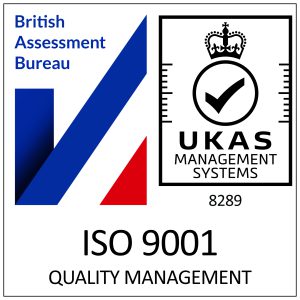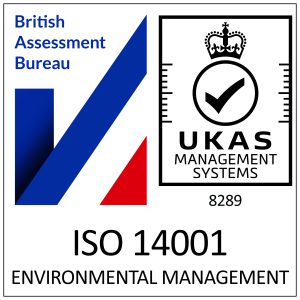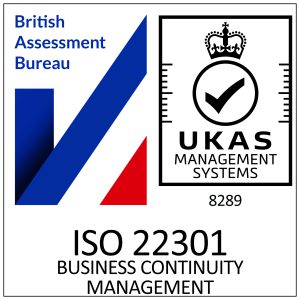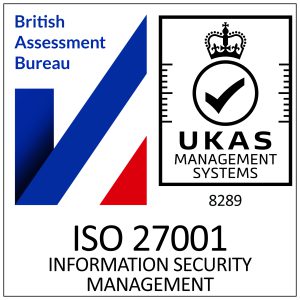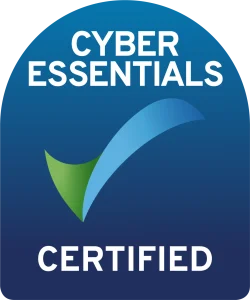How to DBS Check an Employee – Employer DBS Check
How to DBS Check an Employee? Employer DBS Check
As an employer, ensuring the safety and well-being of your workforce and clients is of utmost importance. One way to achieve this is by conducting a DBS (Disclosure and Barring Service) check for your employees. A DBS check will help employers assess an individual’s criminal record and make informed decisions about their suitability for certain roles. In this article, we will guide you through the process of conducting a DBS check for your employees, from understanding the requirements to obtaining the necessary checks.
We are an Umbrella body for the Government and approved to perform Basic, Standard and Enhanced DBS Checks.
Click here to DBS Check an Employee.
Understanding DBS Checks for Employees
A DBS check is a background screening process that provides employers with information about an individual’s criminal history, including spent and unspent convictions, cautions, reprimands, and warnings. It helps employers assess the risk of hiring someone with a relevant criminal record, especially for roles that involve working with vulnerable groups such as children or adults at risk.
How Employers Can Check DBS Records
To check an employee’s DBS record, employers must follow these steps:
- Determine Eligibility: Firstly, identify which roles within your organisation require a DBS check. Not all positions will necessitate one, so understanding the eligibility criteria is essential.
- Choose the Right Level of Check: The level of DBS check required depends on the nature of the role. There are three types of checks available: basic, standard, and enhanced. Assess the responsibilities and duties of the role to determine the appropriate level of check.
- Obtain Employee Consent: Before initiating a DBS check, ensure you have written consent from the employee. Inform them about the purpose of the check and the information it will reveal.
- Contact a Registered DBS Umbrella Body: As an employer, you cannot directly apply for a DBS check. Instead, you need to engage a registered DBS umbrella body like DBS Check Online to carry out the check on your behalf. Organisations like ourselves are authorized by the government to process DBS checks.
DBS Checks for Employees: Best Practices
When conducting DBS checks for employees, it is important to follow best practices to ensure that the process is fair, transparent, and compliant with legal requirements.
Here are some tips for employers to consider:
- Develop a clear policy: Employers should develop a clear policy outlining their approach to DBS checks, including the roles that require checks, the level of checks required, and the process for obtaining consent from employees. This policy should be communicated to all employees and made available for reference.
- Train relevant staff: Ensure that relevant staff members are trained in the DBS check process and understand their responsibilities. This includes understanding the eligibility criteria, choosing the right level of check, obtaining employee consent, and engaging with a registered umbrella body.
- Obtain employee consent: Before initiating a DBS check, employers must obtain written consent from the employee. This should include informing them about the purpose of the check and the information it will reveal. Employers should also provide employees with a copy of their rights under data protection legislation.
- Choose a reputable umbrella body: When engaging an umbrella body to carry out DBS checks on your behalf, choose a reputable organisation that is registered with the government and has a track record of providing high-quality services.
- Provide accurate information: When completing the application form for a DBS check, ensure that all information provided is accurate and up-to-date. This includes details about the role, relevant addresses, and any additional information required.
- Submit supporting documentation: Depending on the level of check required, employers may need to submit additional documentation to support the application. This could include proof of identity, address history, and any relevant qualifications or memberships.
- Await the results: Once the application is submitted, employers must wait for the results of the DBS check before making any decisions about an employee’s suitability for a role. The timeframe for receiving results can vary depending on several factors such as processing times at umbrella bodies or delays at local police forces.
- Assess the relevance of information: If an employee has a criminal record revealed through a DBS check, employers must assess the relevance of this information in relation to the role in question. Factors to consider include the nature of the offence, the time that has passed since the offence, and any evidence of rehabilitation.
- Make informed decisions: Based on the results of a DBS check, employers must make informed decisions about an employee’s suitability for a role. This should be done in accordance with legal requirements and best practices in relation to equal opportunities and non-discrimination.
- Conduct regular checks: While there is no legal requirement for how often employers must conduct DBS checks for their employees, it is good practice to conduct regular checks, particularly for roles that involve working with vulnerable groups.
By following these best practices when conducting DBS checks for employees, employers can ensure that their screening procedures are thorough and compliant with legal requirements. This not only protects their business from potential risks and liabilities but also demonstrates their commitment to prioritizing the safety and well-being of their employees and clients.
DBS Check Online processes all the applications within 24 hours and our account managers make sure that the process is easy for you and your team. We also provide with a certificate with assurance and a badge that you can add to your website and show your visitors that your company is DBS Checked.
Step By Step Guide
- Complete the Application Form: Provide accurate employee information and complete the application form, including details about the role, relevant addresses, and any additional information required.
- Submit Supporting Documentation: Depending on the level of check, you may need to submit additional documentation to support the application. These could include proof of identity, address history, and any relevant qualifications or memberships.
- Await the Results: Once the application is submitted, the umbrella body will process the DBS check. The timeframe for receiving the results can vary, but you will be notified once the check is completed.
By following the step-by-step process outlined in this article, you can ensure that your screening procedures are thorough and compliant with legal requirements.
By obtaining DBS checks for relevant roles within your organisation, you demonstrate your commitment to prioritizing the safety and well-being of your employees and clients. It allows you to make informed decisions based on a candidate’s criminal record, particularly in positions involving vulnerable individuals.
Learn more about fast tracking your application.
Implementing robust DBS checks not only protects your business from potential risks and liabilities but also cultivates a positive reputation in your industry. Clients and stakeholders can trust that you have taken the necessary measures to create a secure working environment.
To get started register with us by clicking here.
For more information call us at 0333 880 5331
FAQs
Q1: What is a DBS check?
A: A Disclosure and Barring Service (DBS) check is a background screening process that provides employers with information about an individual’s criminal history.
Q2: Why do employers conduct DBS checks?
A: Employers conduct DBS checks to assess an individual’s suitability for certain roles based on their criminal record. This is particularly important for roles that involve working with vulnerable groups such as children or adults at risk.
Q3: Who needs a DBS check?
A: Not all positions require a DBS check. Employers must determine which roles within their organisation require one based on eligibility criteria.
Q4: What are the different levels of DBS checks?
A: There are three levels of DBS checks available: basic, standard, and enhanced. The level required depends on the nature of the role.
Q5: How long does it take to receive results from a DBS check?
A: The timeframe for receiving results from a DBS check can vary depending on several factors such as processing times at umbrella bodies or delays at local police forces. However, most checks are completed within 14 days.
Q6: Can I conduct my own DBS checks?
A: No, employers cannot directly apply for a DBS check. Instead, they must engage a registered umbrella body like ourselves to carry out checks on their behalf.
Q7: What happens if an employee has a criminal record?
A: If an employee has a criminal record revealed through a DBS check, it is up to the employer to assess the relevance of the information and make an informed decision about their suitability for the role. Employers must consider factors such as the nature of the offence, the time that has passed since the offence, and any evidence of rehabilitation.
Q8: Can an employee refuse to undergo a DBS check?
A: Yes, an employee can refuse to undergo a DBS check. However, if a DBS check is a requirement for their role, refusing to undergo one may impact their employment.
Q9: How often do I need to conduct DBS checks for my employees?
A: There is no legal requirement for how often employers must conduct DBS checks for their employees. However, it is good practice to conduct regular checks, particularly for roles that involve working with vulnerable groups.
Q10: Can I use a previous DBS check from another employer?
A: No, a DBS check is only valid at the time it was issued. Employers must conduct their own checks for new employees, even if they have undergone a previous check with another employer.
Q11: What happens if I don’t conduct DBS checks for my employees?
A: Failing to conduct DBS checks for relevant roles within your organisation can expose your business to potential risks and liabilities. It may also damage your reputation in your industry and among clients and stakeholders.
Q12: DBS Renewal: How to renew your DBS Check:
A: We recommend renewing your DBS Check every year, most of organisation are now requesting employees to renew their DBS Check every 6 months.















